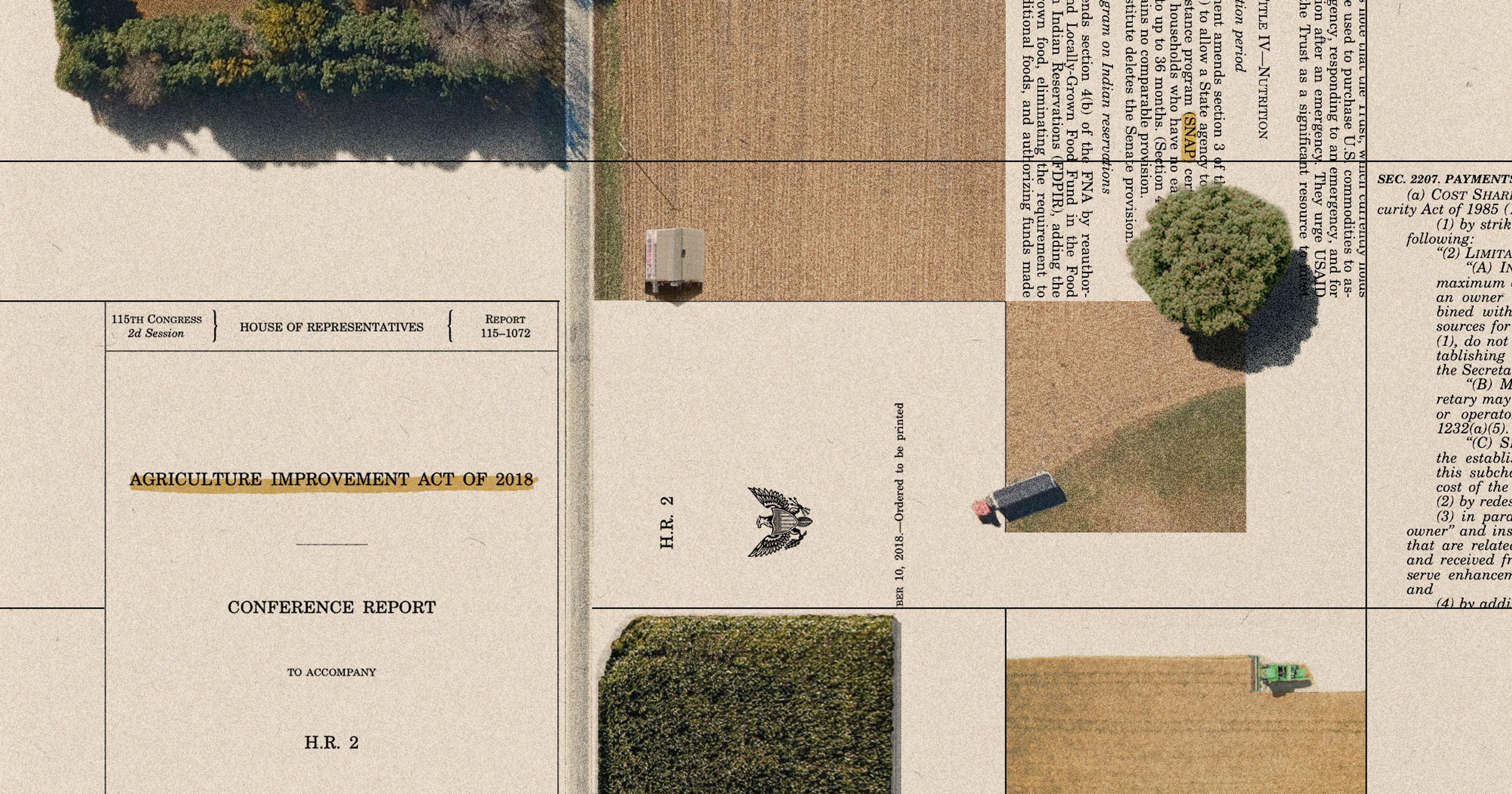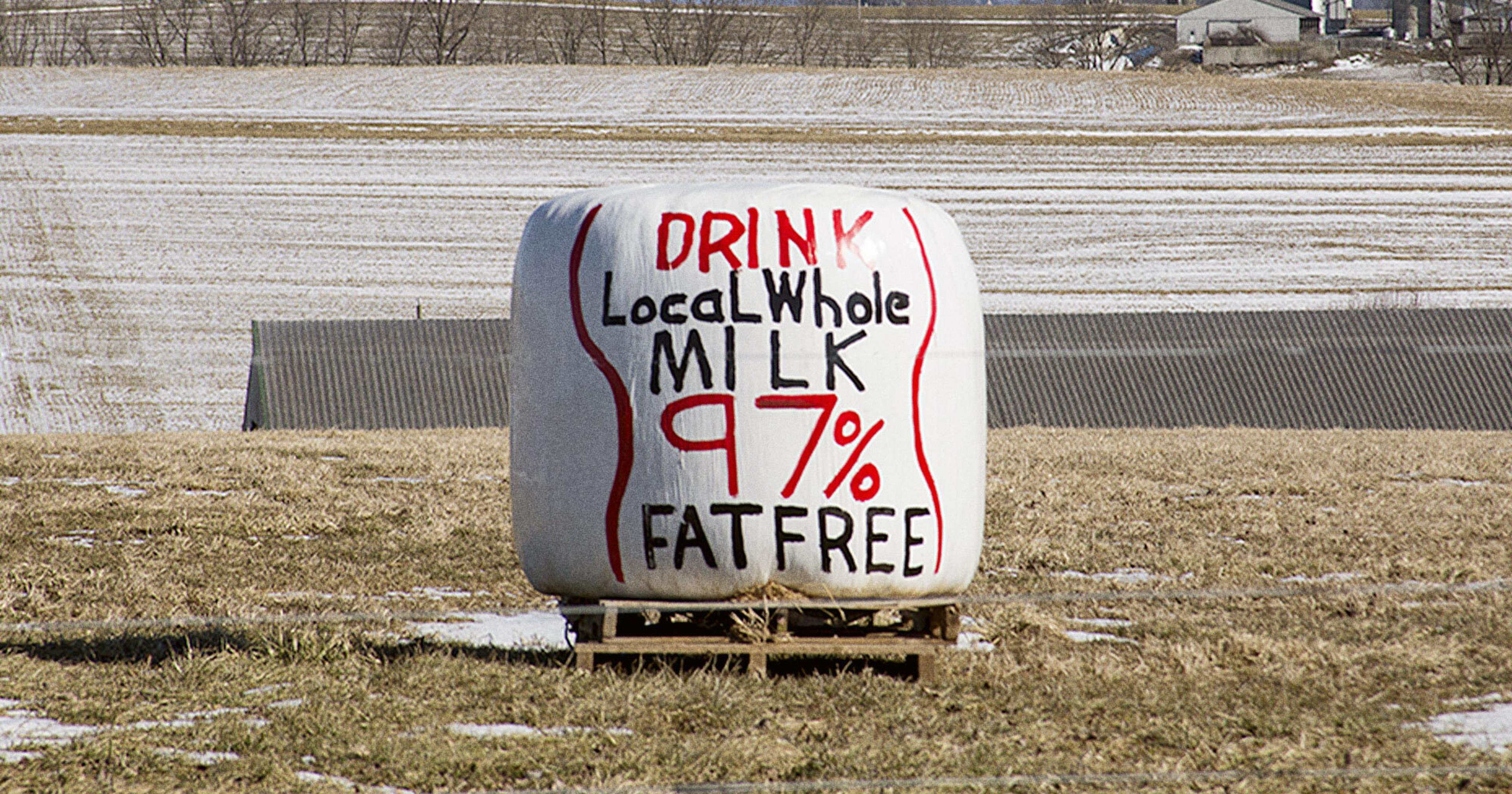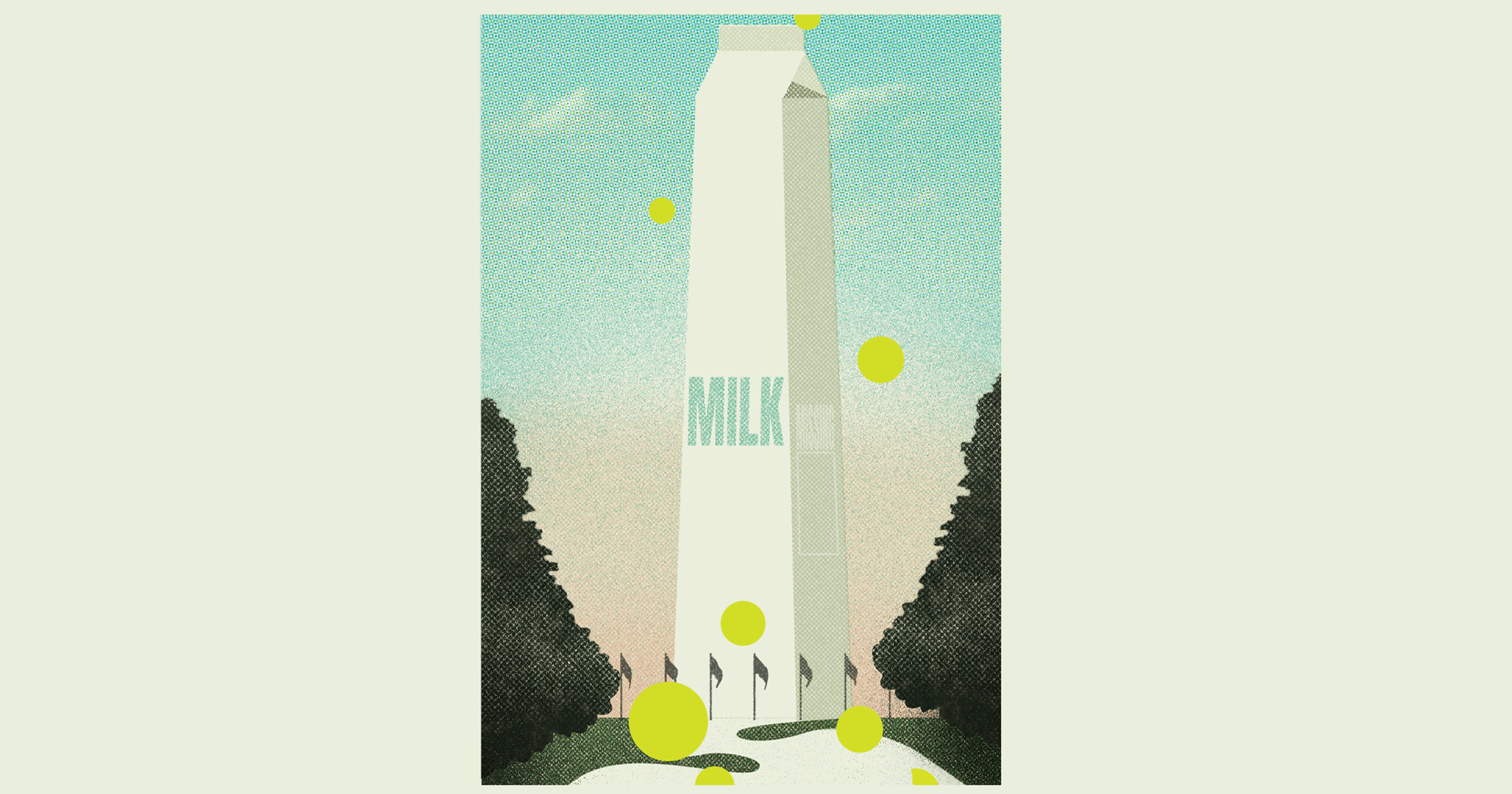Farmers have long faced high suicide rates. The Farm Bill could bring mental health assistance programs and resources.
This article was produced in collaboration with Nexus Media News, part of a series on climate change and the 2023 Farm Bill.
When Mike Rosmann, an Iowa farmer and psychologist, heard his phone ring on a spring morning in 2019, he knew he had to answer. In the previous four months, his state had experienced the wettest period in its recorded history; farmers in the region were in crisis. A week earlier, one of Rosmann’s patients had lost his entire stock of corn when floodwaters breached a storage barrier, threatening to bankrupt him. Rosmann knew the man was in a dark place.
More on Farmer Mental Health

Addressing Agriculture’s Mental Health Crisis

For Farmers in Crisis, Could Online Therapy Be the Answer?
When he picked up the phone, his patient’s wife was on the other end: “He said he’s going to kill himself.”
The climate crisis is wreaking havoc on farms across the United States. Wildfires in California are burning avocado and citrus trees to a crisp, drought in the Midwest has eroded corn and soybean production, and unseasonal Arctic fronts are killing maple blossoms across the Northeast.
These impacts are only getting worse. A 2022 survey by the National Young Farmers Coalition found that more than half of young farmers said they experienced climate impacts either very or extremely often. For farmers, wildfires, drought, floods and pests are not just an inconvenience — they are an existential threat. A 2022 study published by the Giannini Foundation of Agricultural Economics at the University of California found that extreme heat is “positively associated” with farmer suicide. A 2021 study by a Colorado-based suicide prevention group found that when drought conditions increased in the state so did the suicide rate among farmers.
It’s a phenomenon occurring around the world, from India to Australia.
“This is what climate change is doing,” said Rosmann. “It’s putting people in a place of extreme apprehension, where they feel there is no way out.”
Experts say they have witnessed a rise in farmers struggling with anxiety and depression as climate impacts have worsened in recent years. The farmer crisis hotline run by Farm Aid, for instance, has seen a significant increase of calls from farmers during natural disasters linked to climate change.
“When climate disaster strikes, or an ongoing disaster such as drought is occurring, the toll on farmer mental health is high,” said Caitlin Arnold-Stephano, a farmer and program manager at Farm Aid. “Often a disaster can push a farmer over the already-thin margin or edge that existed.”
“It is putting people in a place of extreme apprehension, where they feel there is no way out.”
In recent years, the federal government has woken up to the mental health crisis affecting farmers. The 2018 Farm Bill was the first to direct funding toward farmers‘ mental health, by providing grants for the Farm and Ranch Stress Assistance Network (FRSAN), which connects farmers, ranchers and agricultural workers with mental health assistance programs and resources.
Advocates hope that the 2023 Farm Bill will offer even more support. Bipartisan legislation, led by Senators Joni Ernst (R–Iowa) and Tammy Baldwin (D–Wisc.), would reauthorize the FRSAN to establish helplines, provide suicide prevention training for farm advocates and create support groups for farmers and farm workers. The bill would increase funding for the program, authorizing $15 million per year for the program for the next five years, up from $10 million allocated in the last Farm Bill.
“We need to push for the network to be expanded,” said Rosmann, who helped write the 2018 legislation. “The bill is the major way we can bring about change on this issue.”
Even before climate change began taking its toll, farmers already faced severe mental health issues. The rate of suicide among farmers has historically been three and a half times higher compared to the general population, according to the National Rural Health Association. Farmers often work under precarious and psychologically taxing conditions due to weather variations, changing policies and economic tariffs, as well as fluctuating food prices. In the 1980s, American farmers faced an economic crisis that saw a quarter million families lose their farms, destroying businesses and decimating rural communities. Yet despite these challenges, farmers are less likely than the general public to have access to mental health services.
Rosmann, who grew up in Iowa but spent several years studying and practicing psychology out of state, observed this firsthand when he moved back to his home state in the early 1980s. When word got out that he was both a farmer and a psychologist, his phone did not stop ringing.
Climate change is not only an economic stress — it’s an existential threat to farmers’ very identities.
“People started calling me at all hours of the day and night,” he said. “There was clearly a need for someone who understands the culture of farming and gets what they are going through.”
Over the past five decades, Rosmann has come to intimately understand the toll farming takes. He has stayed on the phone with a woman who tried to kill herself by swallowing too many pills. He has climbed up a 60-foot ladder in a corn crib to stop a friend from jumping.
Now, Rosmann says climate change is exacerbating this crisis. “Practically every farmer is concerned about it,” he said. Some of his patients have lost an entire season’s crop to floods, heat or other climate-related disasters. In other cases, subtly worsening weather conditions simply means more work without an increase in pay, resulting in physical and mental exhaustion amongst farmworkers.
“There is so much burnout in this community,” said Bridgette Downer, who runs a family vegetable farm in Maryland. “The economic pressure is too much nowadays; people just say, ‘I can’t do this anymore.’”
Another stressor is that farmers often feel they are blamed for climate change.
“Livestock and dairy farmers in particular are often singled out as ‘destroying the planet,’ with their cows being blamed for their methane emissions,” said Greg Mruk, executive director of New York FarmNet, an organization affiliated with Cornell University that offers financial and emotional counseling to farmers. “Yet, farmers feel that they are stewards of water, land and air.”
Many farmers, however, struggle to access mental health services, which are often not readily accessible in rural areas. And when services are available, they are not always tailored to farmers needs. Traditional mental health services can be alienating to farmers, who sometimes come from communities where mental health is highly stigmatized.
“To effectively reach farmers, you have to have culturally appropriate care.”
“To effectively reach farmers, you have to have culturally appropriate care,” Rosmann said.
Experts say that for mental health interventions to be effective, therapists need to either come from farming communities or be aware of the farming culture.
“Farming and agricultural culture comes with a lot of ‘boot-strap individualism’ and ‘blue-collar worldview,’ which often includes feelings of power, control, self-reliance and dominion over the land,” said Krista Bajgier, a therapist in Maryland working on mental health and nature. “When you’re talking about climate change, you’re talking about forces seemingly beyond their control.” Bajgier said that if therapists want to support farmers, understanding this worldview is critical. It helps explain why climate change is not only an economic stress — it’s an existential threat to farmers’ very identities.
For farmers and workers from marginalized groups, such as Hispanic migrant farmworkers, experts say it is also critical that therapists be from the same cultural background. Organizations running mental health hotlines have found that Hispanic farmers and farmworkers are more likely to call back if their counselor shared the same culture and language.
Another strategy is to organize group meetings in local community centers, such as churches, where farmers — who often work in isolation — can share their experiences together. Rosmann, who organized these workshops in his hometown, said they are an effective way of teaching people how to ask for help. “These workshops are touching,” he said. “A lot of tears are shed.”
Mental health interventions have increased significantly thanks to the 2018 Farm Bill. Since the legislation was passed, four regional centers established through FRSAN have increased training to recognize signs of depression or anxiety, created support groups and expanded access to hotlines.
If passed, the 2023 bill would increase funding available to the program to hire more behavioral health specialists, particularly those trained to work with different farming populations, including veteran farmers and farmers of color.
But unless the federal government takes action to address the root causes of farmers‘ distress — the economic precarity, the lack of support, the increasingly unpredictable weather — many experts are concerned farmers will continue to struggle.
“The stage is set for another major troublesome era,” said Rosmann. “Farmers are worried about that.”
Farmers say that what they need is not only greater support from the government but more agency and autonomy in developing adaptation strategies to climate change.
“More than anything, farmers want to be given a chance to be part of the solution, a chance to figure it out,” said Mruk. “Let’s not be of the ‘sky is falling’ mindset. We need to take a proactive approach.”
If you or a loved one are struggling, call the Suicide and Crisis Lifeline at 988.







